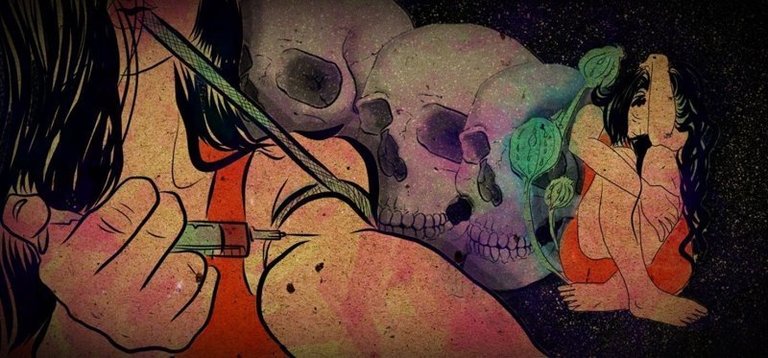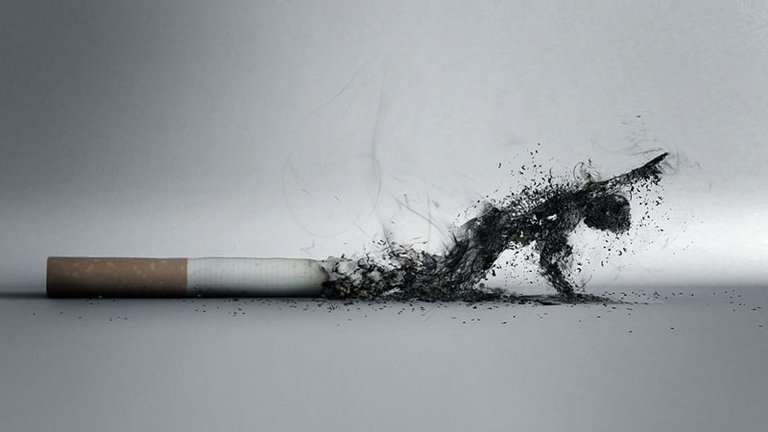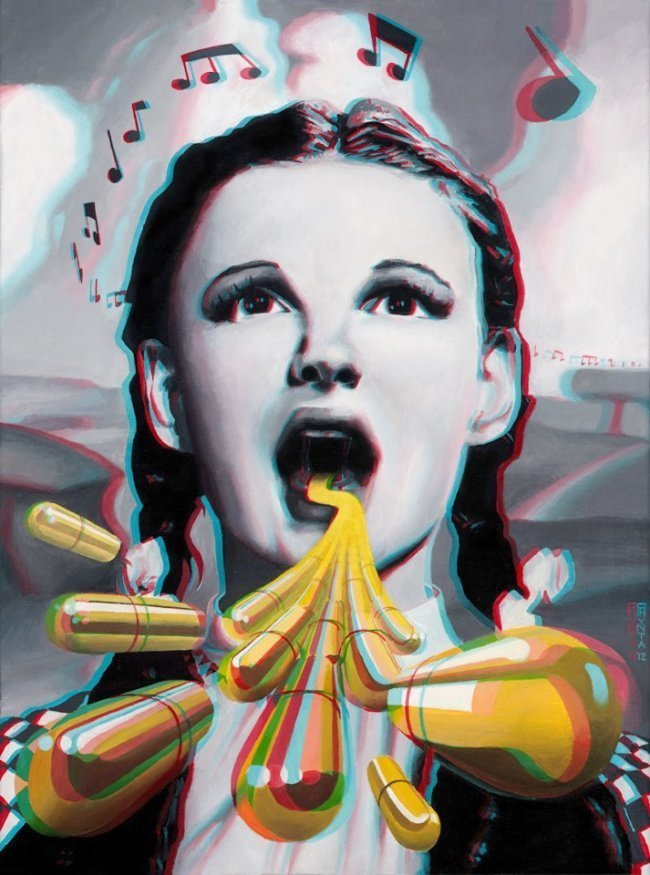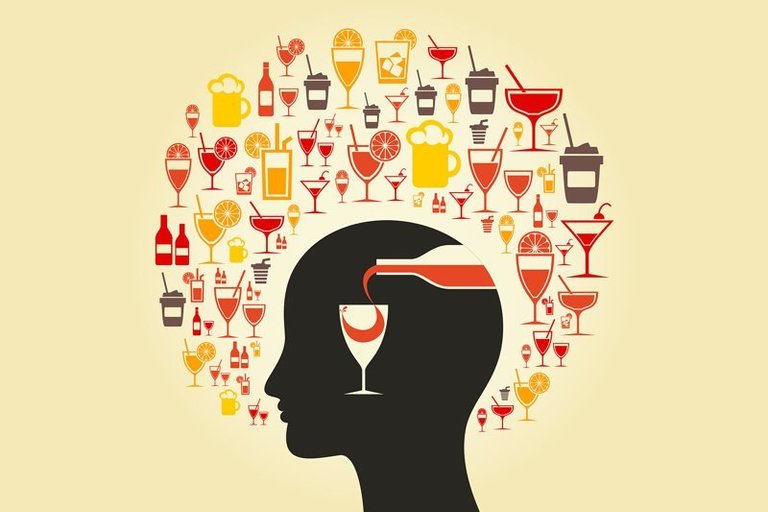
1. Heroin
Heroin is an opioid drug, with the use of which develops a strong mental and physical dependence. This is due to the fact that with the injection the substance quickly penetrates into the brain, easily overcoming the blood-brain barrier between the circulatory and central nervous system. In the brain, it causes an increased production of dopamine. Experiments on experimental animals showed an increase in the level of this pleasure hormone by 200%. An additional mechanism of habituation is the increased production of an excitatory mediator of glutamate. Together with the cruel symptoms of withdrawal - pain, anxiety, cramps, insomnia - this leads to a strong dependence. Breaking begins 4-24 hours after taking the last dose, and the addict badly needs another portion of the drug. In addition, the body quickly develops tolerance to heroin - a person every time requires a larger and larger dose. Heroin addicts often die of heart attacks, strokes, since the drug affects the state of the cardiovascular system. Another cause of death is depletion, which is caused by constant CNS stimulation. Experts gave this drug three points out of three possible in the degree of dependence formation.

2. Cocaine
Cocaine is an alkaloid found in plants of the genus Erythroxylum. In nature, it serves as an insecticide and protects the leaves of shrubs from eating insects. Cocaine has a powerful stimulating effect on the central nervous system, causing a sense of euphoria. Usually the reward system in the brain works according to certain rules. The neurotransmitter - in this case dopamine - enters the space between the neurons, which is called the synapse. Specialized receptors transmit a signal to respond to its appearance, then remove the neurotransmitter from the synapse to stop its effect. However, the cocaine euphoria does not last forever, and after the end of the drug, the phase of the depressed state begins. Other side effects include fatigue, anxiety, insomnia. Cocaine is dangerous for the cardiovascular system. It causes the most powerful spasms, which can lead to hemorrhage in the brain, disrupt the work of the heart or other organs. Another negative effect is the state of acute psychosis, in which a person has little control over himself. In addition, there is a myth that cocaine is not addictive, but it is not.

3. Nicotine
Nicotine, like cocaine, is an alkaloid, which in nature carries out the function of fighting insects. This is the main component of tobacco, which is addictive. Nicotine is quickly absorbed by the lungs and transported to the brain. It increases the activity of nicotinic acetylcholine receptors, which leads to the release of adrenaline. This temporarily stimulates the various systems of the body, and the person feels cheerful and active. And the release of dopamine accompanies smoking with a sense of pleasure. Nicotine is toxic, prolonged use contributes to the development of cancer, ischemia, angina and so on. WHO claims that up to 50% of smokers die for reasons related to a bad habit.

4. Barbiturates
Soothing and hypnotics based on barbituric acid have a depressing effect on the central nervous system. Depending on the dosage, medications can have a mild relaxing effect or lead to coma. Barbiturates stimulate receptors of the inhibitory neurotransmitter - gamma-aminobutyric acid, as a result of which the impulse transmission in the central nervous system slows down. This leads to muscle relaxation, calm, eliminates anxiety. The problem of drug dependence was silenced for a long time, but later they were acknowledged and refused. Deadly drugs and organized crime. As a large pharma corrupted health care from barbiturates in favor of benzodiazepines. However, if cocaine and heroin are illegal, then these medicines have been relatively accessible for a long time, which increases their danger.

5. Alcohol
Absolutely legal in most countries, alcoholic beverages are called the most dangerous drug in the world. They also get used to getting used quickly enough. Studies in animals have shown that alcohol increases the level of dopamine by 40-360%. Alcohol affects gamma-aminobutyric acid (GABA), enhancing its effect. Therefore, the movements and speech of drunk people are slowing down. Alcohol enters the membranes of GABA and mimics the action of hormones-neurosteroids. Because of this, a glass of wine or a glass of vodka relaxes, soothes. GABA gradually adapts to changes, reducing the activity of the corresponding receptors, which makes the brain dependent on alcohol. At the same time, ethanol reduces the ability of another neurotransmitter, glutamate, to act on NMDA receptors. With long use of alcohol, the number of these receptors increases. The brain becomes less susceptible to alcohol and more susceptible to glutamate. This increases excitability, leading to symptoms of withdrawal symptoms: seizures, anxiety. Another reason for the formation of addiction is the ability to quickly get energy to feed the brain. This requires acetate - an intermediate product of ethanol metabolism. The brain sits down on a simple source of energy. In the body regularly drinking alcohol, alcohol replaces the usual source of energy - glucose. According to WHO, 3.3 million people die in the world every year because of alcohol consumption. The statistics include drunkenness-related illnesses and injuries.

Terrific work ! I'm passionate about this subject, I never did drugs but I'm just curious about it and I've always loved chemistry, even if I chose to study physics more, so I will soon complete what you posted as I'm gathering enough documents and information and preparing a complete post about MDMA's properties, how we do its synthesis, effects, as well as for LSD, the main reason why I joined Steemit was this kind of posts are not censored by any kind of dictatorship-oriented mainstream shit like facebook or youtube haha ; so stay tuned :D
Cool artistic images :)!
HI guys, I am a smoker and I agree that nicotine is causing one of the strongest dependence, BUT its influence on our brain is incomparable with the rest of those 4 substances.
Great Post. Heroin And Cocaine change your brain forever. Cocaine specifically is a "BrainChanger". I would definitely know. I was addicted to both substances for close to 9 years... Thankfully I Woke Up to my own madness and Got my life together. I hold a job now, have a family, a dog, cat, a baby on the way... Good feeling, way better than dope..